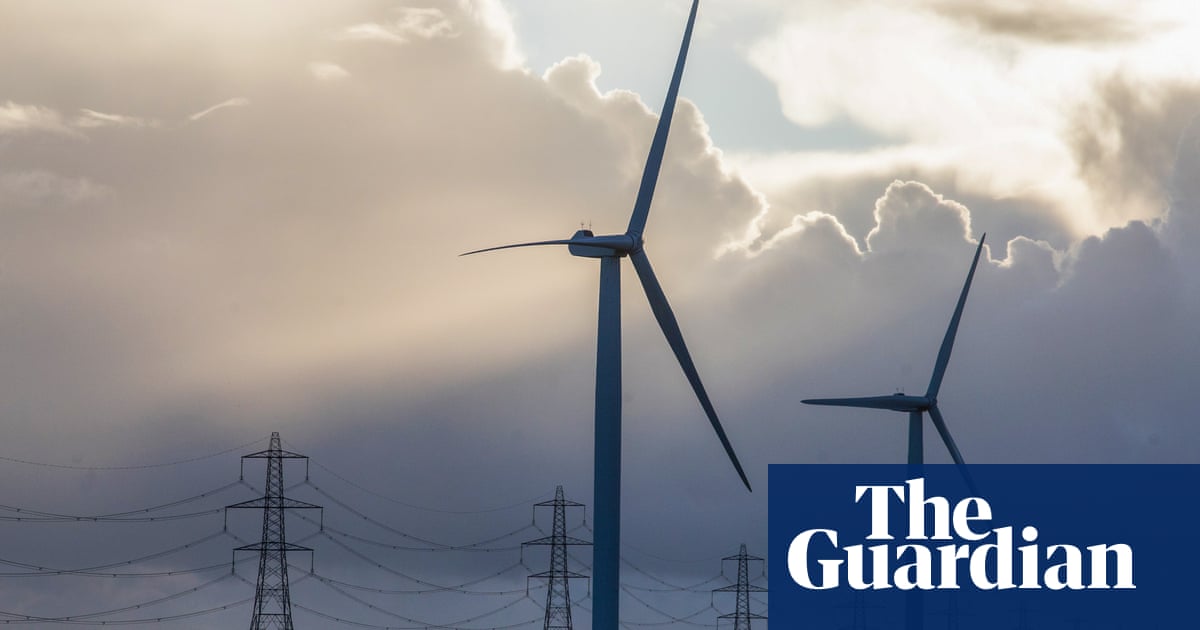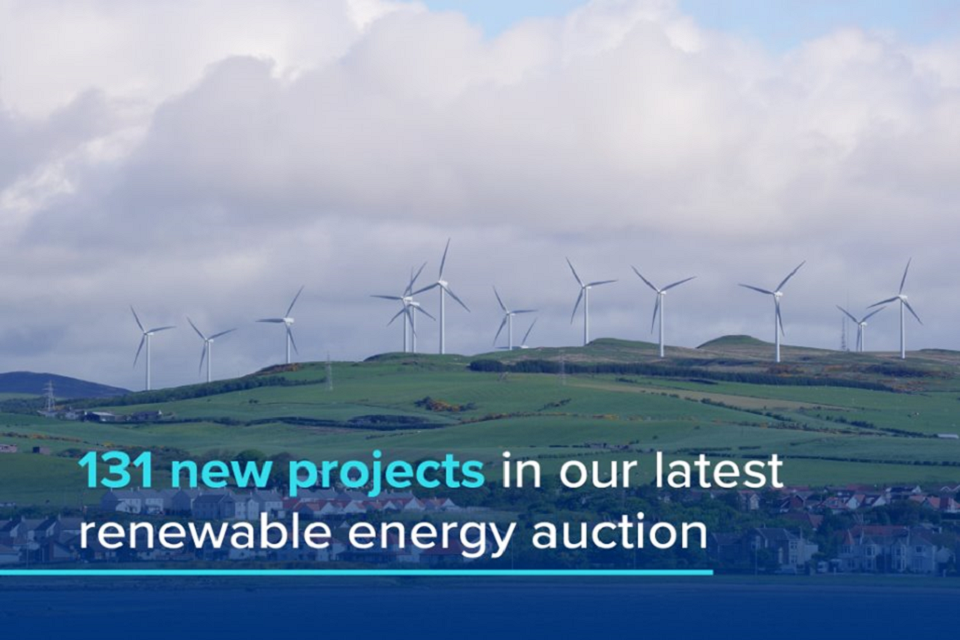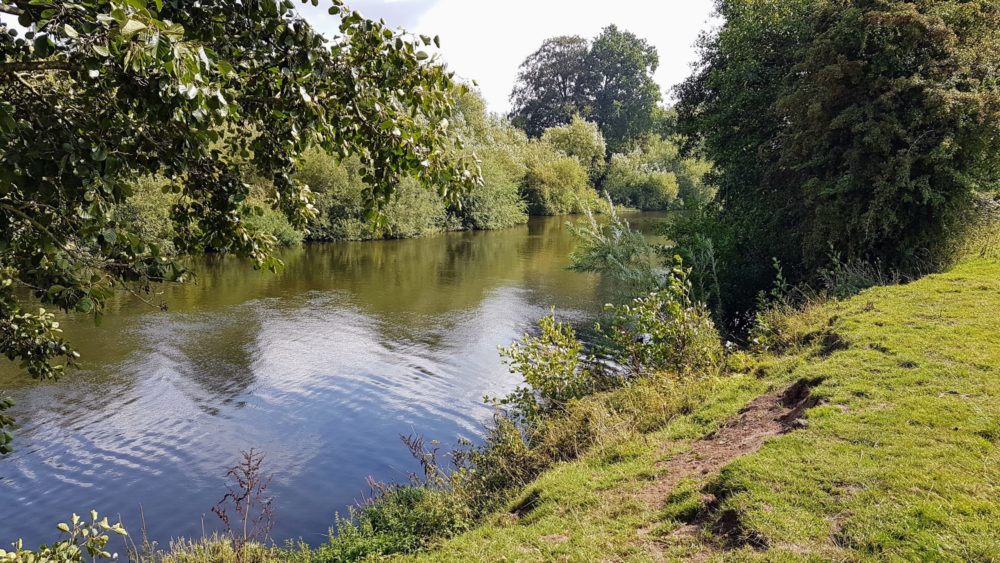Why is Dale Vince Lying About Heat Pumps?
Dale Vince has been lying about heat pumps for days so he can sell more vegan gas. WTF does that even mean?
Dale Vince is the owner of Ecotricity, which claims to be “Britain’s greenest energy supplier”, selling renewable electricity and greenwashed fossil gas. Dale has fallen out with swathes of the climate community lately by campaigning against the Greens in their main target seats, even Bristol, suggesting “the only party that can form a green government” was Labour, with many suggesting this was part of a larger effort to get into the House of Lords.
Dale is known for horrendous ideas like EcoJet, the electric airline company that will be running on kerosene, or Eco Park, the 100-acre sustainable green technology hub he wanted to build on green belt land near Stroud.
Dale's latest thing is a three day tirade of complaining about the UK governments plan for heat-pumps all over Instagram, Twitter, Threads, and countless newspapers.

At first glance this seems reasonable, nobody likes Boris, Dale has a heat pump, maybe he's got something inciteful to say! I'm sure he's not parroting the same old tropes that fossil fuel PR firms have pushed into the mainstream narrative, right?
Let's see!

Heat pumps work in cold countries, yep, that's a good start, but he's immediately playing the insulation card.
Let's hand over to Dr Jan Rosenow writing for Carbon Brief in the article Factcheck: 18 misleading myths about heat pumps, starting with Myth #2.
Heat pumps can work in any building if sized, designed and installed correctly. Many uninsulated homes and buildings are already heated to comfortable temperatures with heat pumps, as shown across multiple case studies, including an uninsulated stone church.
A building loses heat through the walls, the windows and the roof when it is colder outside than inside, as shown by the stylised arrows in the figure below. The upper panels show an outdoor temperature of 10C, coloured purple, and an indoor temperature of 20C, coloured red.
Without insulation, shown in the left-hand panels, heat loss is higher – indicated by the larger arrows – and the heat input must similarly be increased, in order to maintain a steady indoor temperature.
At lower outside temperatures – shown in the lower panels – more heat is being lost, for a given level of home insulation. Yet as long as the heat input from a heating system is equal to the heat loss, the building will still retain its indoor temperature.
This means that for a poorly insulated home, a larger heat pump is needed, just as a larger gas boiler would be needed to reach the required heat input. For any home, the system is usually designed for the coldest day of the year.

Field research from Germany confirms this stylised representation. One of the longest running field studies of heat pumps in renovated properties shows that extensive renovations and insulation upgrades are not necessary to install a heat pump. Good fabric efficiency will keep running costs down, but this is also true for homes heated by gas and oil boilers.
Heat pumps do usually operate at lower “flow temperatures” to maximise efficiency, which means the water pumped to the radiators in a house will have a temperature closer to 50C or below. Although gas boilers also operate more efficiently at lower flow temperatures, they are typically set to provide water at much higher temperatures of 70C or more.
This means the radiators connected to a heat pump system will be cooler, potentially requiring larger radiators or underfloor heating to achieve the same indoor temperature. Research shows, however, that radiators are often oversized to begin with – and that, as a result, not all radiators may need to be replaced.
Moreover, the market already offers high-temperature heat pumps that can reach flow temperatures of 65C and higher. These can be operated with existing radiators.
Furthermore, the UK government’s electrification of heat UK demonstration project showed that the efficiency of high-temperature heat pumps nears that of standard heat pumps, because they only need to run at higher flow temperatures on the coldest days.
tldr: It's fine mate.
Everyone needs to improve bad insulation to reduce how much heating is required, that's just how heat works, but whether you're wasting gas heating out your leaky house or wasting heat pump heat out your leaky house, stopping heat leaking out your house is probably a good idea. That doesn't make it specifically an issue for heat pumps which are far more energy efficient anyway, you're just wasting a bit of electricity which increasingly clean, instead of wasting a bunch of fossil gas which comes from fossil fuels.
The whole radiators thing is outdated bunk as modern heat pumps are even more efficient and mean you probably don't need to change your radiators at all, even if an uneducated installer is suggesting it.
Sigh. Next?

Magic number time! Apparently "heat pumps cost £15,000 to install", but the average installation cost of an air source heat pump in 2023 was £12,368, so he's rounded up for effect there.
He's also ignored the £7,500 government boiler upgrade scheme that would bring the cost down to £4,868.
Octopus Energy offer heat pumps and their costs are far lower than Dale is claiming.
88% of our quotes are lower than the UK's average heat pump cost of £5,321 (including the BUS grant).
Personally I think inflating numbers by ~300% to make a point is a dick move, but he's not done yet, he's also trying to say that heat pumps are more expensive to run. Back over to Dr Jan Rosenow and Factcheck: 18 misleading myths about heat pumps for a snippet from Myth #10.
It is a fact that electricity prices are higher than gas prices. Under the UK energy price cap as of March 2024, each unit of electricity is four times more expensive than gas.
However, heat pumps use about 3-5 times less energy compared to a gas boiler. This is because a heat pump turns one unit of electricity into 2.5-5 units of heat.
In addition, if the heat pump is also used to produce hot water, households can save £110 per year by disconnecting from the gas grid and no longer paying the gas “standing charge”.
In a household paying standard unit prices under the March 2024 UK energy price cap, a heat pump with a SCoP of more than 3 will achieve cost parity with the running costs of an 85% efficient gas boiler.
Of course all these comparisons are done with the standard electricity price, which ignores that better electricity providers offer discounted rates for heat pump users. Tariffs like Octopus Energy's Cozy Tariff helps use electricity when there's a surplus, helping to balance the grid when there's excess, and avoid hammering the grid when there's a dip in renewables.

Perhaps heat pumps will be more expensive to run on Ecotricity, but not if you switch to Octopus. Matt Edwards, Transport Spokesperson for the Green Party, has set up a handy referral link where you can get £50 for switching to Octopus, and the Green Party will also get £50. Perhaps you want to use this, especially if you're on Ecotricity and are generally fed up with this nonsense.
🪙 You switch to @OctopusEnergy, they give both of us £50.
— Matt Edwards 🟢 (@greenmattbfd) September 22, 2024
⚡ They supply 100% renewable electricity and invest in generating more.
💚 I'll donate my £50 to The Green Party to help win more elections against Labour.
Use the link to sign up to Octopus 👇 https://t.co/DAk7qDxLm7
But wait, there's more.

This one almost broke me.
YES MATE.
Heat pumps run on electricity instead of gas, which is the entire point. They are 300% more efficient than gas boilers, but the whole damn point here is to stop using gas.
Your gas boiler runs on methane, and methane is responsible for around 30% of the current rise in global temperature. Burning it is terrible enough, but it also leaks the whole way through extraction, production, and transportation. It leaks from the gas grid, under the road by your house, it leaks inside your house, and sometimes gas boilers explode killing everyone in the house. Heat pumps don't do any of this, which is a good thing.
Yes, we will need more clean energy to power heat pumps, but as we already mentioned, much of this will be coming from peaks of renewable excess, which helps keep the grid running smoothly, and reduces the reliance on batteries to hold storage, meaning you don't need to hammer electricity to suddenly warm the tank when you've cycled home from work and need hot water for a shower, it'll just be there waiting for you.
Will heat pumps suddenly cause a blackout if we use them? Obviously not. The UK just turned off it's last coal plant, and our change of blackouts is lower now than it has been in the last four years.

Do we have enough renewable projects coming to cover this? We have absolutely loads.

The Green Party (who Dale hates) are also pushing a bill to require all new homes to come with their own solar panels, heat pumps, and quality insulation, which will reduce the impact of the new housing stock, meaning that these new renewable projects will be able to support all the existing homes we're switching to heat pumps.
Why is Dale Vince Like this?
Dale is lying about heat pumps because he wants to make money.
Dale wants to use agricultural land to create biogas, produced from anaerobic biodigesters, also known as methane digesters. Methane digesters in general are amazing, and Project Drawdown list them as a climate solution.
The use of large methane digesters can grow to 376.11–395.55 terawatt-hours by 2050. This would avoid 6.02–7.05 gigatons of greenhouse gas emissions at a net first cost of US$138.13 to 182.09 billion. Source: https://drawdown.org/solutions/methane-digesters
Ever farm in the U.K. could have a methane digester. Imagine. Every single farm that has any sort of livestock, horses, or food waste (failed/unharvested crops), could all produce biogas on site, removing the need for farms to buy liquid natural gas to run their operations. It also produces a clean fertilizer, which would reduce reliance on petrochemical fertilizers.

Switching agriculture over to use more biodigesters and biogas would be absolutely revolutionary for gas production. Instead of importing expensive fossil gas from Norway (or countries swapped out the Russian logo) we could use natural biogas created here in the UK, reducing emissions from manure piles as they rot down in fields, leaking phosphates and nitrates into rivers killing aquatic life in every major river across the country.

Of course biomethane has all the same leaking issues both in transit and inside your home as fossil methane, so we want to avoid pumping it around more than we need to. It could help abate reliance on gas on farms, be bottled for use in industry, and trucked to utility scale gas electric plants, or even be burned on site to power the electric grid when needed.
This would all be a handy stop-gap whilst we work on electrifying everything, but no, this is not what Dale Vince wants to do.
[Biogas] may be green but it’s definitely not vegan when energy companies add animal by-products (silage, manure, etc) from the livestock factory farming industry to the mix to create gas or drive turbines for electricity. Although technically it may still be green, it’s not vegan and it’s not right. Source: https://ecotricity.co.uk/our-news/2023/ecotricitys-vegan-energy-the-past-present-and-future
Oh ok. I mean... yeah I get that vegans don't want to use animal products, ok, but what are you actually suggesting?
We’re currently finishing construction on our new green gasmill. Built near Reading in Berkshire, when fully operational it will provide the gas needs of 4,000 local homes. Our green gasmill will be fed by herbal lays - a mix of grass and herbs, sown and grown on [3,000 acres of] farmland next to the plant.
Unlike other forms of green gas which often use animal waste, ours is made ethically and sustainably from grass cuttings. The grass is broken down by anaerobic digestion in vats, producing biomethane. This is then captured and fed into the grid. Anaerobic digestion of green matter is a genuinely green, vegan way to make biogas.
Our Green Gas report, published in the summer of 2022, shows that Britain theoretically has enough land to make all the gas we need, not just for homes but for businesses too, enabling Britain to become self-sufficient in renewable gas.
Wow bold claims!
All homes and businesses could be powered by green gas made entirely from hay? Could it?
If 3,000 acres can produce enough biogas for 4,000 homes, and there are ~30 million homes in the UK, then we'd need 22.5 million acres of land to produce the gas for just home use, which is 4.5 times the size of Wales, or ~70% of England.
This ignores businesses, but I don't think I need to squiggle anything else on this fag packet to point out how stupid this idea is. It's greenwashing that could only ever work on people who have literally never considered briefly squinting at a calculator.
Check out this marketing video from Dale and Ecotricity for more bold claims.
Beyond the obviously insane claims that we can create all the gas needs for all homes and businesses in the country with hay, there are some logisticial concerns, especially with the claim from Dale in that video that this would be "carbon free".
Biomethane still produces carbon dioxide when burned.
This gas all has to be collected up somehow, and even if we can somehow convince every single farm in the country to stop doing whatever they're doing with their land and switch to just purely making hay, it's generous to assume we're going to swap all those diesel combine harvesters for electric combine harvesters, so they're producing emissions, even if they're running on vegan gas.
Then when it's harvested, we quickly need to get all that grass to the nearest biodigester. If we assume one plant per 3,000 acres, we'd need 7,500 of these biodigesters spread around the country, and we'd need trucks to move the huge bails of hay around. How much is that going to cost, and are they going to be all electric?
I cannot be bothered to work out the emissions involved with building and managing 7,500 biodigester sites.
Put simply, this is all entirely derranged, unworkable, and is the sort of thing sensible climate activists would just ignore, but when it's being used to spread fear, uncertainty, and doubt about heat pumps for obvious financial gain it needs to be addressed.
That's not the only problem.
I work with farmers every day at Protect Earth, doing the hard work of reforesting chunks of their land, often helping them switch from purely grazing to a diversified land mix of conservation, carbon, and conservation grazing, meaing the number of animals under their management is going down, the welfare of those remaining animals is going up, and the balance of nature is being restored.

The more people like Dale Vince spout nonsense like "we're going to replace all grazing land in the entire U.K. with hay to produce vegan gas", the harder it is for me to do my job. We get called "rewilding willy wagglers" by the very people we need to be working with, and the first half hour of any conversation with any farmer I'm potentially working with is trying to explain that people like Dale Vince don't know what they hell they're t alking about and are best off completely ignored.
The worst part is that Dale knows this. He has publicly come out against sustainable aviation fuels that require agricultural land to produce energy to make e-kerosene, calling the whole idea “bullshit”. He said: “There is nowhere near enough land to grow the crops you’d need.”
Yeah Dale, there's nowhere near enough land to grow the crops you need. Feel free to carry on pretending there is, but stop posting easily disprovable nonsense about heat pumps to do it.


Comments ()